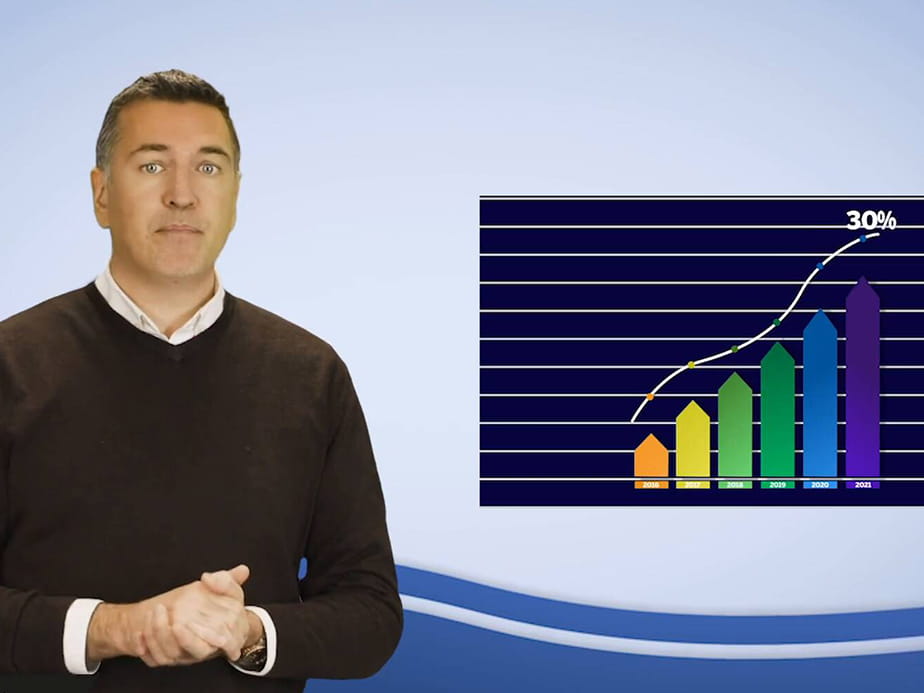- Home
- CV Writing
- Resume Writing
- LinkedIn Profile Writing
- Interview Coaching
- Career Coaching
- Outplacement Services
- Partner Program
- News & Videos
- About
- Contact
Send us your details using the form below and we'll call you back as soon as possible.

11 Most common CV mistakes
When starting your job search, the priority is creating and tailoring your CV to show prospective employers that you're the perfect candidate for the job.
Writing your CV is such an important process and sufficient time should be set aside to ensure the finished document is as good as it can possibly be. If not, your CV could be standing between you and your dream job, so it must be a professional document with impeccable spelling and grammar that holds the interest of the hiring manager.
Below is a list of the most common CV mistakes job seekers typically make.
11 Common CV mistakes to avoid
1. Cliches in your relevant skills
Creating a Key Skills section that is full of generic behavioural competencies that are too vague and don’t add value won’t help you stand out. These can include phrases such as:
“working well in a team”
“working under pressure”
“honest, reliable, and trustworthy”
“good communication skills”
“excellent timekeeping skills”
Be specific about your core competencies. Not only will this convey your main skills clearly and succinctly, but this section also helps to highlight particular keywords that might be scanned by applicant tracking systems.
2. No achievements in your work history
Failing to include achievements in your CV is an oversight many people make and among the most common CV mistakes we encounter.
A minimum of 25% of your CV should be allocated to highlighting your achievements and projects or other value-added activities you have delivered.
Quantifiable statistics or data, where available, should be included to reinforce these successes to demonstrate that you are good at what you do.
3. Being too brief!
A CV needn’t draw attention to every task you’ve ever completed or responsibility you’ve held, as hiring managers or recruiters simply won’t remain engaged, and the qualitative content will be lost. Conversely, your CV should be of sufficient length to provide enough information for the reader to be able to identify the organisations you have worked for and the positions you have held, together with some details regarding the scope of those roles.
For example, instead of writing:
“Supervising staff”
Incorporate greater detail that gives more context and highlights the scope of your role:
“Manage a team of 20 IT specialists with 3 direct reports including 2 Helpdesk Managers and Infrastructure Manager, overseeing all resource planning, recruitment, training and performance management."
4. Details are in a random order
Creating a list of duties and responsibilities that don’t flow will make the document difficult to read.
How information is presented should be well thought out and a structure that makes sense and gives potential employers easy access to key details should ensure you are seen as a credible candidate and continue in the hiring process.
To ensure there is a logical flow to the information highlighted, follow this structure:
Provide a description of the company
Supply an overview of your role
Describe how your role is measured, including specific KPIs where available and appropriate
Include a bullet point to describe the structure and size of your team, if appropriate.
You can then deliver your other bullet points to give the reader more insight into individual responsibilities and achievements.
5. Spelling mistakes and grammatical errors
One of the worst and unfortunately most common mistakes to make on your CV is to misspell words or use poor grammar.
This is a big mistake, as it instantly undermines your credibility and potentially wastes all the time and hard work you put into making your application. It’s unlikely hiring managers will respond to candidates that haven’t made the effort to ensure their CV is free from spelling errors.
Carefully craft your CV in a Word document and perhaps try to make minor tweaks to shift the emphasis in certain areas to create better alignment with the job description.
Once drafted, proof it. Read it out loud to yourself. You're often more attentive when reading out loud and therefore more likely to pick up on misspelt words.
Make sure it's error-free and uses the correct tense:
Past tense should be used when referring to previous jobs
Present tense should be used when talking about your current role
Use a spell checker, but double-check it yourself, and then check it again. Alternatively, use a professional CV writing company to create the perfect CV for you. That way you can be assured there are no mistakes and employers will be more likely to consider hiring you.
6. Poor formatting & unprofessional fonts
A CV that’s poorly presented is a big no-no. It may be the only time you interact with a particular company and so the CV you send to supplement your job application must look professional and portray you in the right way.
A prospective employer will spend up to 7 seconds reading your CV, so making it as easy as possible for them to find what they need will maximise each of those valuable seconds and leave a positive impression of you as a candidate.
Bullet points are a great way to space out content and avoid expecting the reader to read large bodies of text.
If using bullets, ensure the formatting is consistent throughout the document.
Are you the right person for the job?
Do you have any experience?
What value can you offer them?
These are the kinds of questions they'll be asking when they look at your CV.
So, avoid:
Lengthy CV sections with large amounts of text
Tiny text
Omitting personal details
Unprofessional fonts that make reading text difficult
7. Inappropriate email address
Sending a CV using an old, unprofessional email address can undo all the hard work that goes into creating a high-value document. There’s every chance your message will be immediately consigned to the Trash folder and with it your chance of landing the job, so steer clear of falling into this trap.
Having an inappropriate email address is a common mistake, but one that’s easily avoidable. Make sure you're sending your CV from a suitable address that’s appropriate for business communications.
8. Ignoring employment gaps
Employment gaps are nothing to be ashamed of and can give recruiters valuable insight into your personality and character that would not perhaps otherwise come across within the CV.
You may have taken a career break to go travelling, attend university, start a family, or care for a relative. There are numerous reasons why people take a sabbatical and it’s not something that should be disregarded. Be honest. Briefly explain your employment gaps and then move on.
9. Not optimising for specific keywords
This is one of the most underrated and often neglected elements of writing a CV but selecting and including the right keywords will help your CV navigate applicant tracking systems and position you as the right candidate.
Employers are often looking for a specific skill set when recruiting for a vacancy and forgetting to highlight your key skills using keywords may mean you are overlooked for an opportunity despite possibly being the best applicant.
Online job posts will often request fundamental information such as contact details or salary details but pay close attention to other areas to identify potential keywords that could be utilised in your CV to help pass through applicant tracking systems.
10. Untruthful or unoriginal personal profile
Lying on a CV is obviously a big mistake and one that should never be made. Regardless of how impressive it may initially make you sound if something’s too good to be true, it usually is. Professional recruiters will know when numbers don’t quite add up, or dates don’t align.
If tripped up in conversation, all credibility and integrity are lost, and the selection process will likely continue without your involvement.
Your personal profile is the first thing an employer reads, so the content needs to be impactful and help to differentiate you from other candidates. It must be original and creative to keep you in the mind of recruiters and hiring managers – remember, they only spend 7 seconds reading the whole CV, so the opening section has to be memorable.
11. Misunderstanding what a CV is
Failing to understand what a CV is! This is one of the worst CV mistakes to make because it's more fundamental than simply fixing grammatical errors and spelling mistakes.
A CV should not just be a timeline of your career added beneath your personal details. Nor should it be an exhaustive list of your skills drafted to match the job description.
It is a tool used to leverage job opportunities and should therefore be an evidence-based, professional document that communicates your value to potential employers.
What should your CV be? Avoid the CV mistakes
Your CV should be a business case that explains where you can add value; it should be a personal sales tool that sells you as a potential employee; it is your window to the outside world in the same way that a website promotes the products or services of a business.
So many people struggle to find a job and yet they have cobbled together a CV that they would readily admit was drafted in a rush just to get an application submitted. If that’s the case, the CV is likely to be the inhibiting factor and the reason their job search has continued to be unsuccessful.
They haven’t realised that the CV is the problem.
There are nearly 3 million unemployed and probably an equal amount of employed people applying for jobs; that’s a lot of competition. Your CV helps you stand apart from the crowd and helps gets you noticed.
You might also be interested in:
Share this post:
Managing Director
